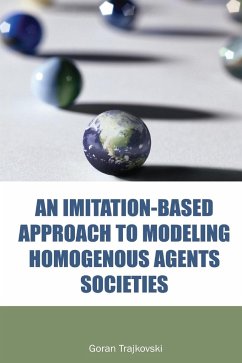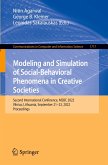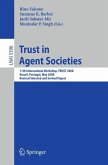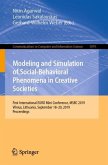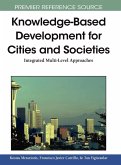As interest in computer, cognitive, and social sciences grow, the need for alternative approaches to models in related-disciplines thrives. An Imitation-Based Approach to Modeling Homogeneous Agents Societies offers a framework for modeling societies of autonomous agents that is heavily based on fuzzy algebraic tools. This publication overviews platforms developed with the purpose of simulating hypotheses or harvesting data from human subjects in efforts for calibration of the model of early learning in humans. An Imitation-Based Approach to Modeling Homogeneous Agents Societies reaches out to the cognitive sciences, psychology, and anthropology providing a different perspective on a few classical problems within these fields.
Bitte wählen Sie Ihr Anliegen aus.
Rechnungen
Retourenschein anfordern
Bestellstatus
Storno

